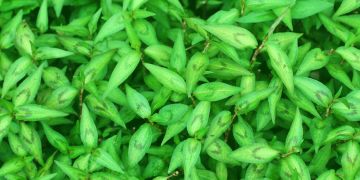Health benefits
Its medicinal proprieties have been documented in Sanskrit and Greek writings. Hippocrates used this powerful herb for its health benefits. In some parts of Europe, cilantro has been referred to as an "anti-diabetic" plant because its seeds have hypoglycemic effects. In India, coriander is very popular for its anti-inflammatory proprieties. The seeds of this plant were found in the tomb of Ramses II.
Coriander fruits
Coriander fruits are anthelmintic, fungicide and bactericide. They reduce digestive spasms and alleviate abdominal pain. The fruits are rich in amino acids, fatty acids and proteic substances. Individuals who suffer from diabetes, as well as those with high cholesterol levels can benefit from using this herbal remedy as some of these acids are very effective in reducing cholesterol levels in the body. This herbal remedy contains citronelol, which is a powerful antiseptic. The antioxidants and antifungal proprieties of coriander are ideal for treating skin dryness, eczema and other skin disorders.
Antioxidants
Coriander contains powerful antioxidants that protect the body from the damage caused by free radicals. Fresh coriander leaves are a rich source of carotenoids (which have antioxidant activity). It has been shown that 125 ml of fresh coriander leaf juice contain almost as much beta-carotene (vitamin that acts as an antioxidant) as 250 ml of broccoli juice.
Coriander seeds
Its seeds can be used to prepare medical teas to treat indigestion. Boiled coriander seeds are beneficial for women who suffer from heavy menstrual flow and hormonal mood swings.
Source of iron
This herb is an excellent source of iron, phytonutrients and flavonoids. It protects the body against urinary tract infections, prevents nausea, lowers blood sugar levels and aids in digestion. The presence of iron and vitamin C strengthens the immune system and relieves pain.
Analgesic properties
Coriander may also be used in treating muscle pain, headaches and stiffness. Because of its heating and analgesic effect, this plant is used to treat athritis, pain in bones and rheumatism. The high content of bioflavonoids from the leaves helps in treating varices and hemorrhoids.
Coriander juice
Coriander juice is beneficial in treating dysentery, colitis, indigestion and hepatitis. When mixed with a pinch of turmeric powder, it serves as a powerful remedy against blackheads and pimples.
Anxiolytic effects
Recent studies have shown that coriander can be successfully used in treating anxiety, depression and panic attacks due to its anxiolytic and sedative effects.
Linalol
This plant contains linalol, an essential oil that can help detoxify the liver and increase the appetite.
Stimulant
The essential oil in coriander is believed to stimulate creativity, optimism and imagination. Recent studies have shown that coriander can cause a mild euphoria.
Oral health
Scientists have proved that the antibacterial properties of this plant can be used to improve oral health. Coriander not only freshens breath, but it can help cure ulcers and sores in the mouth.
Coriander, milk and honey
Mixing coriander seeds with milk and honey is an excellent way to reduce fever. This medicinal can also help in diarrhea and flatulence.
Cooling effect
During summer, cilantro has a cooling effect. For individuals suffering from conjunctivitis, it reduces eye burn and irritation.





